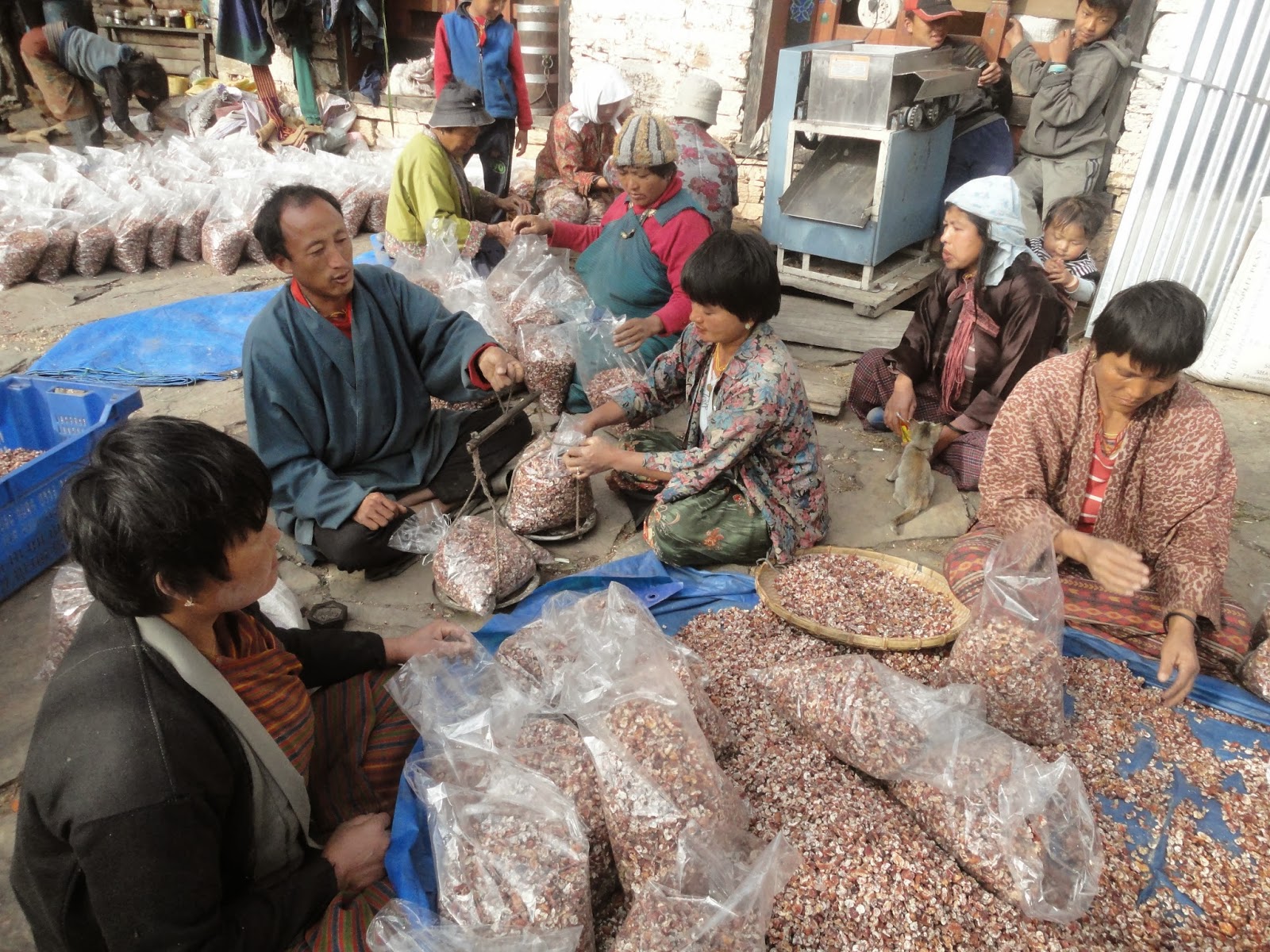Usually in mid November, farmers fully clad in eye catching outfits get together in Drametse to witness annual festival. The event marks the start of dry season where men need not have to chase monkeys in the sunlight or wild hogs in the moonlight as their farmlands are bare without corns or paddies. With no worries of their farm animals being beaten by landlords for having encroached into the fields or their people being troubled by irrigation dispute, farmers dance to the rhythm of the festival. During the occasion, I have seen men gaming with cards and dices, women cheering with goblets and bottles, and children fooling around with lately bought playthings. Those notes they pay out for their festivity are not earned with the paper works like nearly the entire civil servants do. Every fifty pence piece was earned by ploughing the unbreakable earth, terracing the steep slopes and watering the scorched plants.
Now with the end of the festival, farmers usually do not have on farm duties until the thunder cracks through the shady clouds with salutation for the monsoon to pour out its initial shower or unless the flowers blossom in every wild lands. During this sleeping phase of the year, some men travel poles apart in search of off farm works and some stay at home helping their neighbors to erect houses. But few farmers, mostly women stay at home doing only kitchen works and those people otherwise will reach to dormancy stage like seeds of plants if not intervened at precise point of time by extension agents like us.
So, during this dry winter season, a group of sixteen members from Bikhar hamlet of Drametse decided to reap amla (Emblica officinalis) from Dozam Community Forest under strict supervision of Geog Forestry Extension Office. In a couple of day the group successfully harvested 2560 kg of fresh amla which when processed in dried form yielded approximately about 436 kg. The semi-processing and packaging task was completed only after ten working days and in the end a merrymaking rice wine gathering was arranged by the coordinator of the group.
But before wrapping up my article, a number of readers may possibly be eager of how semi-processing of amla is done. So, at first the fresh amla needs to be boiled in big pot and on cooling the stones of the amla fruits have to be removed by cautiously hammering on the deseeding table. Then it should be sun bathed for many days, and sorting has to be done before packaging in food grain polythene plastic. This then needs to be pressed by sealing machine and weighed.
This semi-processed product on reaching to market will earn Nu 131 per kg (latest revised rate, earlier it was Nu 109 per kg) which means the group will have gross income of Nu 57,116 without deducting cost incurred in transportation and paying 5% of its total amount to the Dozam Community Forest as incentive for resource consumption. During the marketing process, RAMCO (Regional Agricultural Marketing Cooperation Office) in Mongar plays vital role in connecting the value chain as marketing facilitator. The semi-processed products are then reached to Bio-Bhutan or ITMS as per their demand by RAMCO.
ITMS processed about 20% of the dried amla into 37 types of traditional medicines and supplies to forty Indigenous hospitals, and remaining 80% are processed into herbal teas. However, Bio-Bhutan export dried amla to Taiwan at Nu 135 per kg and also process some of it into herbal tea.
These are stories of amla after having supplied by Eastern farmers and before reaching it to end consumers. However, back at home the farmers are happy with what they earn because such work coincide with lean winter season or otherwise it would not be profitably if it were to be harvested in the middle of monsoon when they are digging soils and sowing seeds.
These are stories of amla after having supplied by Eastern farmers and before reaching it to end consumers. However, back at home the farmers are happy with what they earn because such work coincide with lean winter season or otherwise it would not be profitably if it were to be harvested in the middle of monsoon when they are digging soils and sowing seeds.
 |
| Tea & Rice wine, its Party time |





















